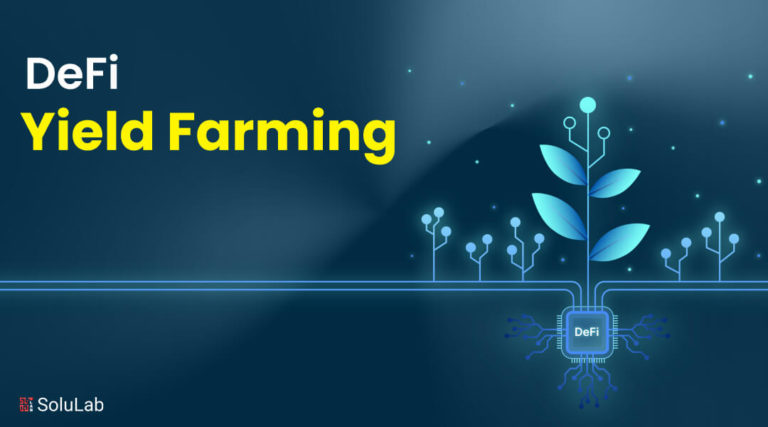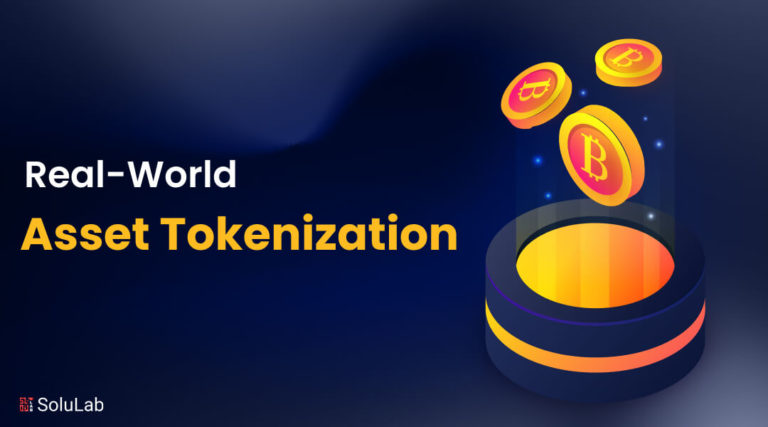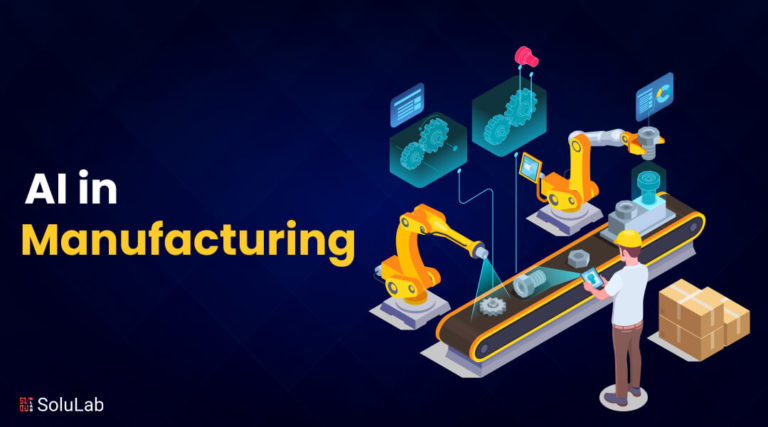Here is a collection of TED Talks about Blockchain and Cryptocurrency. Listen and get a hint of these ted talks if you are curious to know about the hottest topic in the tech industry!
Blockchain: Massively Simplified | Richie Etwaru | TEDxMorristown
Richie Etwaru explores the potential and consequences of blockchain as a paradigm for slowing down the growing trust gap in business. The main issue, like with every paradigm, is what is the one item, what is the one need that paradigm covers for everyone right now.
The internet has closed the distance gap, making the globe much smaller than it was 40 years ago. Today, a new innovation known as a blockchain is filling the void.
Trust
Blockchain alters something very basic to us: the way we trust in business. The importance of trust in business cannot be overstated. The basic currency of trade is trust. The ledgers that we use today to trade with, whether it’s a home, a vehicle, the rights to a piece of art, or someone who owns intellectual property or a patent, are temperable; you can delete a record as well as add or amend a record. Intermediaries such as banks, the Department of Motor Vehicles (a fantastic intermediary for identification), mortgage title firms, and credit reporting agencies all assist us to trust.
Let us now understand what a blockchain is and what it does
Blockchain also has a ledger. The blockchain ledger is a massive improvement over the current ledger. There are a few intriguing aspects to it.
Every record on a blockchain ledger is associated with a unique key. This key cannot be hacked. Every record is signed and stamped by the trustworthy person who authored it. When the next record is created, everything from the previous record, including the key, is entered into that formula, which produces a key for the second record. The identical thing occurs when the third record is written. This is where the term “chain” in blockchain originates from. If someone chooses to delete it, you can immediately use an algorithm and look at the information to identify that it has been tampered with. As a result, we may benefit from an immutable ledger. Intermediaries will be eliminated via blockchain.
Why is blockchain so interesting today?
The trust gap is growing because we are transacting with more things in more ways than ever before. If you look at this idea as a kind of zero trust and plentiful trust, you can see that the need to trust is growing. You are now transacting not just with humans, but also with machines and smart gadgets.
Two additional things are altered by blockchain. The trust gap is widening in the identification sector, where many scams occur.
The other area is the new technologies that are coming online, in which we must trust more than simply humans. We will transact with about 50 billion smart gadgets, and we will have to trust all of them. This is how the trust chasm is widening.
Blockchain is creating trust in companies like Uber and others where innumerable transactions are happening.
How the blockchain will radically transform the economy | Bettina Warburg
The blockchain is going to revolutionize everything. Bettina Warburg explains how blockchain will remove the need for centralized organizations like banks or governments to enable trade, transforming age-old concepts of business and banking into something much more interesting: a distributed, transparent, autonomous system for transferring value.
For a long time, economists have studied people’s behavior. How we behave as individuals and as groups. What is the method through which we trade value? They have examined the institutions that enable human commerce, such as legal systems, companies, and marketplaces, but there is a new technical institution called the blockchain that will radically alter how we exchange value.
While blockchain technology is entirely new, it is also a continuation of a very human tale. As humans, we want to reduce ambiguity about one another in order to trade value.
Douglass Cecil North was a well-known American economist who specialized in economic history. He meant formal restrictions like a constitution and informal limitations like bribery when he said institutions. These institutions are the lubricant that keeps our economic wheels turning, and we can watch this play out throughout the course of human history. When we consider hunter-gatherer economics, we can see that humans essentially traded in a village framework. As civilization progressed, more formal organizations such as banks, governments, and businesses were created. With the advent of the internet, online organizations like eBay, Alibaba, and others were created.
Drawing a comparison between Blockchain and Wikipedia
A comparison between blockchain and Wikipedia is drawn. When it comes to Wikipedia, it is an open platform that saves text and pictures as well as modifications to that material over time. Consider the blockchain to be an open infrastructure that holds many types of assets.
How does blockchain promise to fundamentally alter the economic system?
In our day-to-day transactions, we encounter three types of uncertainty, all of which may be mitigated by blockchains. We confront uncertainties such as not knowing who we’re dealing with, not having insight into a transaction, and having no redress if anything goes wrong. In the lecture, we discover how blockchain may assist us to cope with these issues.
We can use the blockchain to establish a common reality among non-trusting entities. Because each node in the network has the capacity to monitor and verify the chain, none of the nodes in the network need to know or trust one another.
Blockchain enables us to create code that binds contracts between people and then ensure that those contracts will be honored without the need for a third-party enforcer.
Our mutual mistrust is what makes the blockchain safe and verifiable. Blockchain technology is still in its early stages. There will be a number of experiments that will most likely fail. As a result, we should not put too much stock in speculations that the blockchain would be a panacea for all manner of issues such as global poverty, rainforest preservation, and so on.
How the blockchain is changing money and business | Don Tapscott
What exactly is blockchain? Don Tapscott is here to assist, demystifying this world-changing, trust-building technology, which he describes as the “second generation of the internet” with the potential to revolutionize money, commerce, government, and society.
The technology that will have the most effect over the next several decades has come. And it has nothing to do with social media, big data, or robots. It’s not even artificial intelligence, and you’ll be shocked to discover that it’s the underlying technology of digital currencies like Bitcoin. It’s known as the blockchain.
To build confidence in our economy today, we depend completely on large intermediaries such as banks, governments, large social media firms, credit card companies, and so on. And these intermediates handle all of the business and transaction logic that we call commerce, from authentication and person identification to cleansing, setting, and record-keeping. And, in general, they do a decent job. However, these are escalating issues. For starters, they are centralized. That means they can and are progressively being hacked, as JP Morgan, the US Federal Government, Linkedin, Home Depot, and others discovered the hard way. They keep billions of individuals out of the global economy, such as those who do not have the money to open a bank account. They make things move more slowly.
What if there was an internet of value, some sort of huge, global, distributed ledger operating on millions of computers and accessible to everyone, where every kind of asset, from money to music, could be stored, moved, transacted, traded, and maintained without the need for strong intermediaries? What if there was a native value medium?
Defining Bitcoin
Bitcoin is an asset that fluctuates in value, which should pique your attention if you are a speculator. In a broader sense, it is a cryptocurrency. It is not nation-state-controlled fiat money. And it piques my attention. The true show pony here, though, is the underlying technology. It’s known as a blockchain. As a result, for the first time in human history, individuals worldwide can trust one another and deal on a peer-to-peer basis. Trust is built not by a large organization, but by cooperation, encryption, and smart programming. And since trust is inherent in technology, Don refers to this as “The Trust Protocol.”
Ethereum Blockchain
Vitalik Buterin, a Canadian, created the Ethereum blockchain. He’s 22 years old, and this blockchain has some incredible potential. One of them is the ability to create smart contracts.
Initiatives on the Ethereum blockchain are underway to accomplish anything from establishing a new substitute for the stock market to holding politicians responsible to people.
Since social inequality is increasing, the first age of the internet, the internet of information, gave us riches but did not distribute prosperity. And this is at the root of all of the rage, extremism, protectionism, xenophobia, and other ills that we are seeing on the globe today.
So, could we come up with any fresh ways to the issue of inequality? Because the only option now is to redistribute money, tax people, and spread it more widely. Could we redistribute riches in advance? Could we alter the way money is produced in the first place by democratizing wealth production, including more people in the economy, and guaranteeing equitable compensation?
Don describes 5 ways in which this can be done:
- Protecting rights through immutable records.
- Creating a true sharing economy.
- Ending the remittance rip-off.
- Enabling citizens to town and monetize their data (and protect privacy).
- Ensuring compensation for creators of value.
Technology is giving us the opportunity to rewrite the economic power grid in the old order of things and to solve some of the world’s greatest problems!
How Smart Contracts Will Change the World | Olga Mack | TEDxSanFrancisco
Olga Mack is a seasoned lawyer with a keen interest in the confluence between law and blockchain. She discusses how smart contracts work and why they are important in her presentation.
Understanding the underlying technology behind smart contracts.
The term “blockchain” refers to an immutable distributed ledger. How does this cryptography technique work? Decentralized apps, or dApps, may be built using blockchain and a technological platform like Ethereum, and smart contracts are at the heart of dApps.
What exactly are smart contracts?
Smart contracts are not, in fact, intelligent contracts. They are essentially bits of code that encode business logic and serve three purposes at their heart. For starters, they keep regulations. Second, they validate rules, and last, they self-execute rules. There is no middleman since smart contracts are blockchain apps. It runs automatically.
Smart contracts are being used by the corporate world
There will be many applications in IoT, finance, supply chain, and other areas. Four examples are used to demonstrate the breadth and depth of smart contracts:
- Smart contracts are excellent at storing data.
- Smart contracts are excellent at fostering trust.
- Smart contracts may be used to create software libraries.
- Smart contracts are excellent at authentication.
We don’t typically think about blockchains or smart contracts when we imagine a better future. This is due in part to the fact that these technologies are not fully understood. We will be able to harness creativity and expertise once we understand that we can use smart contracts to address long-standing issues.
How Blockchain can transform India | Jaspreet Bindra | TEDxChennai
Jaspreet Bindra is a Blockchain and digital transformation specialist. He was the Chief Digital Officer of the $20 billion Mahindra Group until recently, and he is still their Digital Adviser.
A comparison is made in this talk between the internet and blockchain in this talk.
There are many ways to conceive about blockchain, one of which is to see blockchain as a single large ledger in the cloud.
Blockchain is secure and traceable
Blockchain is secured by the most advanced encryption methods and is very difficult to attack. The second essential aspect is that each new block is immutably connected to the previous block, and that block is linked to the previous block. If you need to alter one block, or if a hacker needs to change one transaction or a block, he or she must change the whole chain, which is very tough. As a result, there is super security powered by unanimity and immutability. Another feature of a blockchain is that, since it is a chain, you can really trackback any occurrence.
Birth of bitcoin
Blockchains also promote or are the originators of smart contracts, which are logic embedded into most blockchains. The chain is not owned by anybody.
So, who maintains it? It is not a single bank that is a trusted authority. In reality, it’s a large group of individuals. However, resources are required to keep this cycle going. You’ll need some computer power. You need electricity, time, and money, so when Satoshi Nakomoto invented this concept in 2008, he created a currency that was the incentive for all those people who were maintaining this chain. This currency was called bitcoin, and the guys who managed became miners!
How can blockchain be used to transform a country like India?
Agriculture accounts for about 16% of our GDP. Agriculture directly employs 12 crore people. In reality, India possesses the world’s second-largest agricultural land area.
The terrible thing is that 23 farmers commit suicide in this nation every day because they lack agricultural equipment to produce crops. Even if they do own property, it is extremely little. You can’t conduct scientific agriculture because you can’t obtain results depending on the input you put in. Even though you own the land, most of the time it is not registered as theirs, so they cannot obtain financing for all of the inputs that they need, and they wind up dying themselves by taking loans from other people.
Blockchain is the perfect technology for creating fractional ownership which is even simpler to accomplish, and all of the finance and problems that come from there can really be taken care of mainly by this technology.
Blockchain is more of a mindset than a technology. The most intriguing aspect of blockchain is that it promises to address two issues that the internet was unable to solve. The trust and intermediation issues, as well as the restoration of a genuine and honest peer-to-peer economy!
Conclusion
According to these ted talks, blockchain is still in its early stages, but technology has the potential to change the way financial transactions are performed and recorded in the future. Through the idea of a decentralized transaction system, this technology has the potential to connect individuals from all over the globe together. This would enable individuals to generate value that is transparent and free of political entities’ control.




